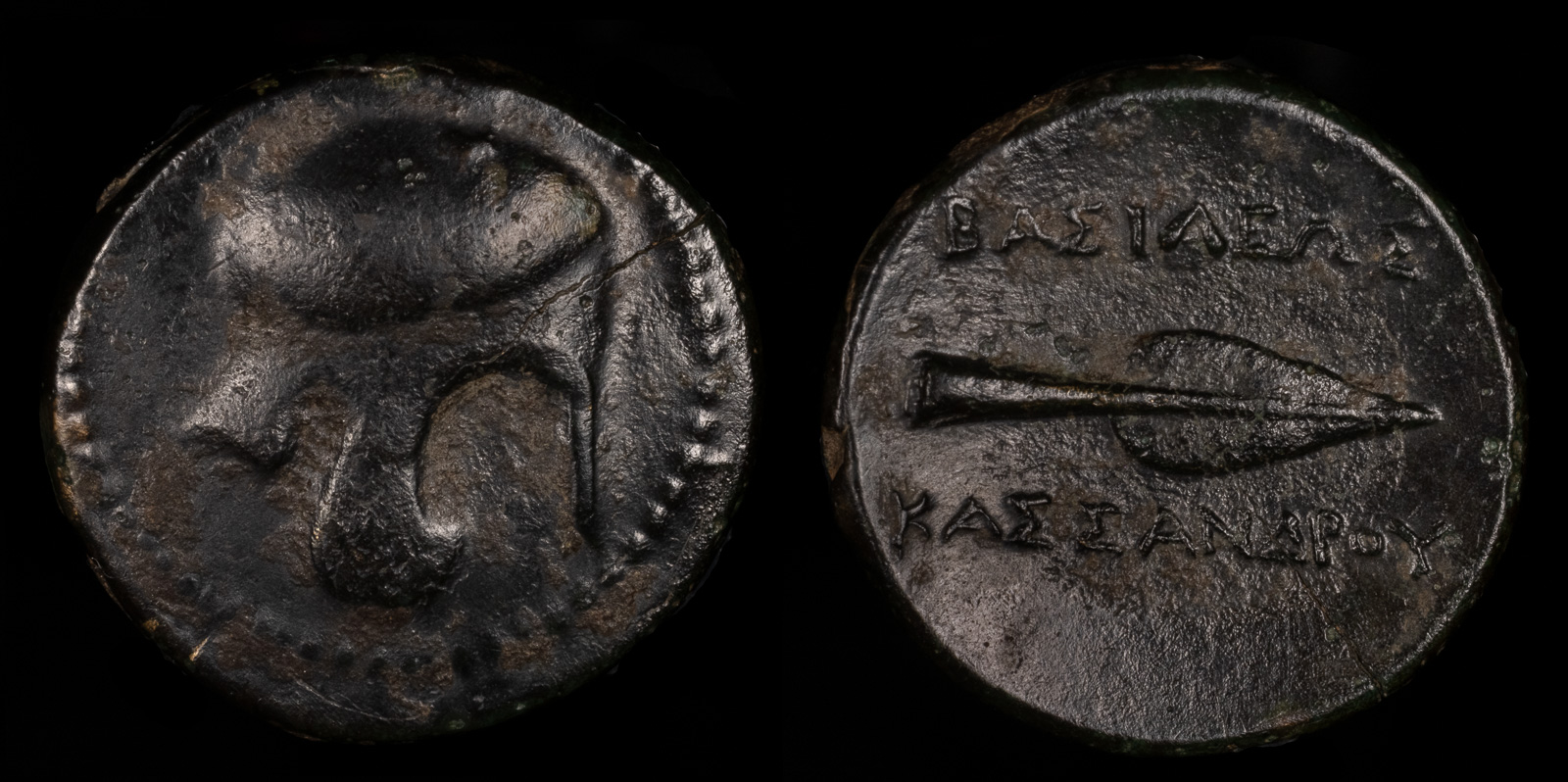
Kassander, 305-298 BCE AE
Struck under Pleistarchos 301-298 BCE
Although the name on the coin states Kassander, this coin was minted by his brother Pleistarchos, likely when he ruled Caria. Since Pleistarchos operated under his brother’s umbrella, he of course didn’t use his own name – even though Eupolemos, another of Kassander‘s generals, did do this.
Perhaps Pleistarchos didn’t use his own name to avoid complicated holiday party conversations. After all, Kassander was equally likely to be at all family gatherings, and Pleistarchos didn’t want to always explain why the king’s name wasn’t on the king’s coins.
Regardless, this is one of my favorite bronze pieces. It’s in extremely good condition given the type, and is practically an advertisement for “Kassander – Badass.”
Approximate birth year of Pleistarchos to Antipater.
Pleistarchos serves as garrison commander in Chalkis.
Pleistarchos, Eupolemos and Kassander are defeated at the Diplyon Gate – the only double gate for Athens – by the Athenians while trying to re-install Demetrios of Phaleron.
Pleistarchos is expelled from Argos.
Pleistarchos sent by Kassander to join Lysimachos in the effort against Antigonos Monophthalmos.
Demetrios Poliorketes blockades the Hellespont, forcing Pleistarchos to turn back. Pleistarchos’ ship is destroyed in a storm on the way to Herakleia and he survives by clinging to the wreckage.
The Battle of Ipsos. Demetrios Poliorketes and Antigonos Monophthalmos are defeated by Seleukos I Nikator, Kassander (commanded by Pleistarchos), and Lysimachos. Antigonos is killed. Demetrios continues the Antigonid dynasty.
Pleistarchos becomes a ruler in Caria.